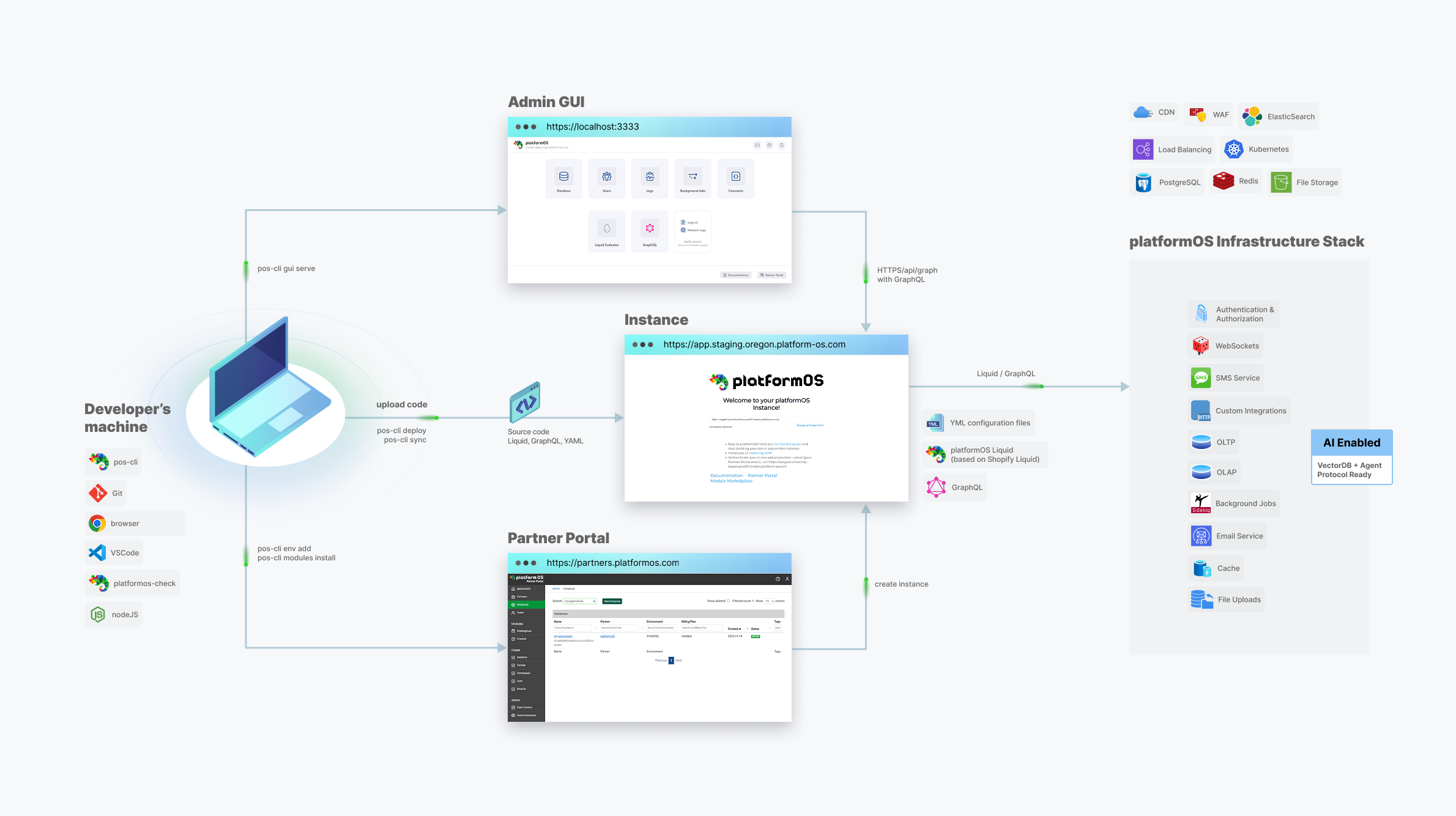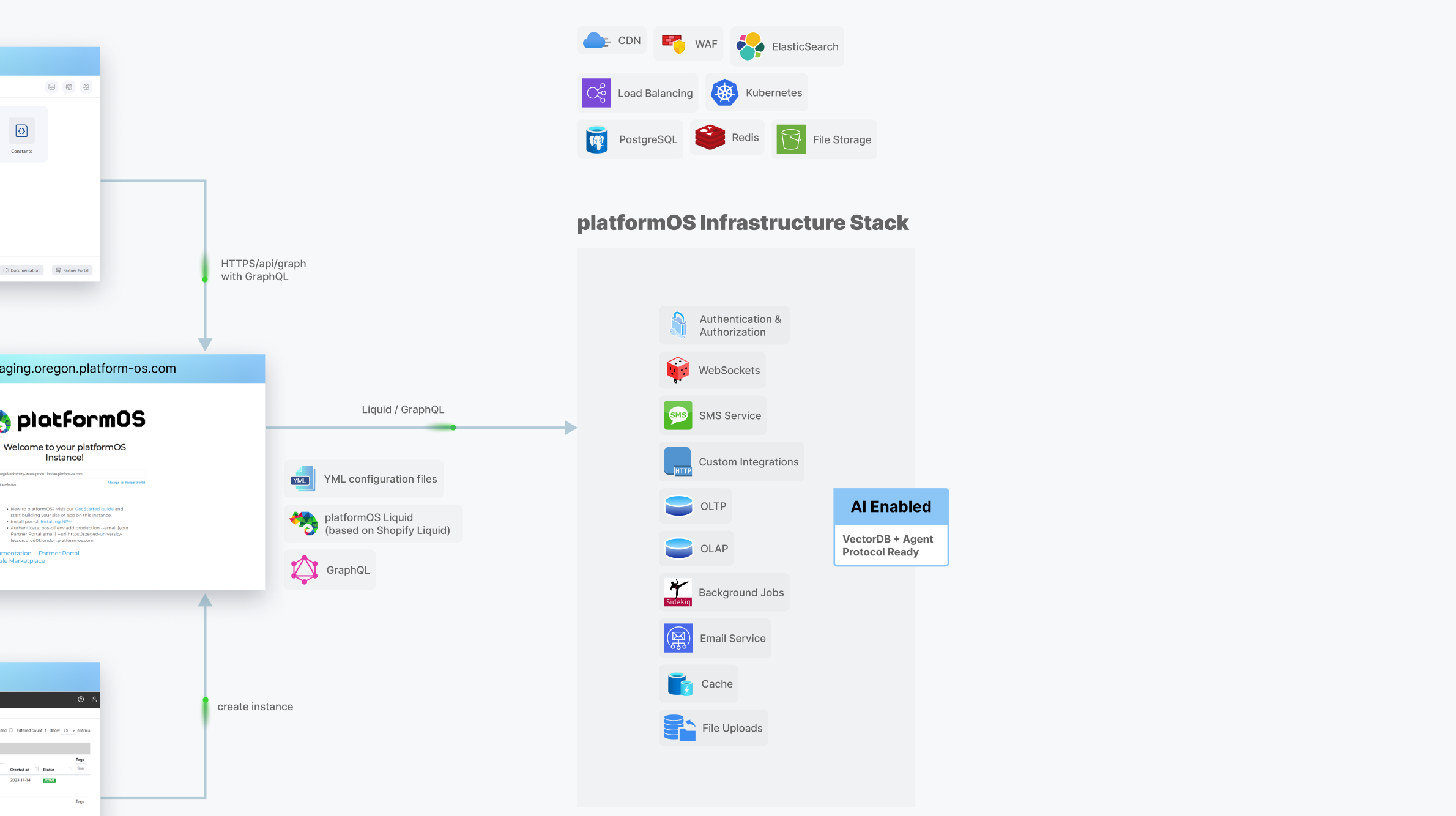What is platformOS?

platformOS is a fully managed, multi-tenant-by-default development platform that gives teams full control over their data, schema, and application behavior, without needing to manage infrastructure themselves. This is all possible through a set of powerful abstraction layers using Liquid, GraphQL, and YAML configuration files. This abstraction layer simplifies development by providing access to a pre-configured infrastructure stack - to focus on building features, not managing servers.

Built for SaaS, Without the Typical Limitations
Originally built to support the creation of next-generation SaaS products, platformOS was designed to solve a key problem: traditional SaaS lacks flexibility. Most SaaS platforms offer extensive built-in functionality and a user interface for configuring application behavior, but users quickly hit limits when they need a missing feature or a custom integration. Instead of relying on workarounds or waiting for their feature requests to be prioritized, platformOS gives developers access to the source code in a secure, sandboxed, isolated runtime environment called an Instance. This allows developers to build on top of preconfigured functionality and, when needed, go beyond it by modifying the codebase.
Best of Both Worlds
In short, customers of applications built on platformOS get the best of both worlds: they benefit from the immediate value of a working product and managed infrastructure of SaaS, the built-in DevOps automation, and a user interface to configure various aspects of the system. However, when they outgrow the built-in features or need to add custom behavior or integrations, platformOS gives them the ability to extend the application by modifying the source code directly.
For example, platformOS powers a wide range of solutions - from marketplaces and eCommerce solutions to community platforms. For example, Community Solution offers an affordable, advanced starting point that can scale in any direction.
Similarly, our multi-award winning Docs-as-Code approach to documentation, DocsKit, is available to use.
Open-Source Modules and Resources
Building a complex application from scratch is a challenging task and a significant investment. That’s why we’ve created a set of open-sourced modules that provide essential functionality, such as user authentication, RBAC authorization, OAuth integrations, 2FA, and payment processing - as well as general architectural patterns that help developers write maintainable code and implement unit tests
We’ve also open-sourced repositories to make it easy to set up CI/CD pipelines via GitHub Actions. These pipelines can run E2E tests (for example, using Playwright), execute unit tests using the pos-module-tests module, and invoke the platformos-check linter to catch syntax errors, dead code, undefined variables, and style guide violations - helping teams maintain code quality.